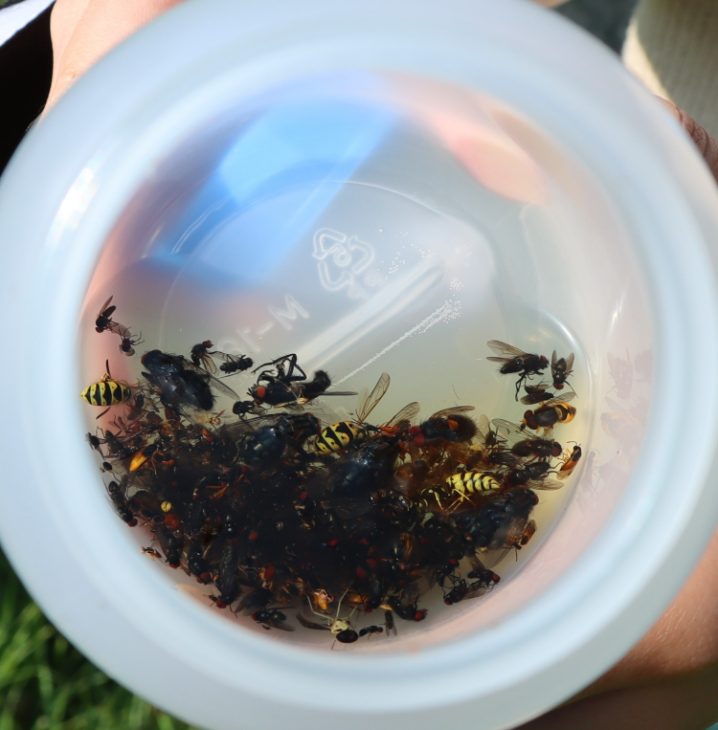The BIOSCAN for Flying Insects in the UK project aims to collect and study the genetic diversity of 1,000,000 flying insects from across the UK. The resulting sequence data will provide a baseline characterisation of insect species diversity over space and time and thus form a much needed resource for DNA-based biomonitoring in the UK.
About the Project
The BIOSCAN Project is using simple DNA barcoding to study insect species diversity and species interactions for one million insects over the next five years. Its ambition is to have 100 sites across the UK using Malaise traps on a monthly basis to passively collect insects which can be studied to see how species diversity and species interactions change.
The project is looking for long-term partners who are interested in or whose research would benefit from carrying out DNA-based monitoring of arthropods at their site of interest on a monthly basis for 2-5 years.
Register Your Interest
There is no deadline and no commitment expected when registering your interest.
Register now

Being a BIOSCAN project partner
The outcomes of participating as a BIOSCAN project partner include the following:
- A “Biodiversity Report Card” will be provided to you for each sampling event, revealing the species identity of every insect or if there is no clear match, the nearest taxon level or barcode sequence cluster. Over time, this report card will be enhanced with species interaction information and assessments over time (and space, in comparison to other sites across the country).
- The project’s cheap, non-destructive DNA extraction protocol supports the preservation of specimens for morphological study after sequencing, and all specimens will be returned to you for further study if you so wish.
- COI Data are generated from 10,000 individual flying insects in a single sequencing run, and you will receive all resulting data from your samples as well as access to simple analysis notebooks and online training videos to help you make the most of these data.
- When the mini-barcoding protocol is live, species interactions of these insects, including their diets and their potential symbionts and parasites, will be studied and the sequencing results shared.
Find out more about the project on the Sanger project page and register your interest in becoming a partner.
The NBN Trust and the BIOSCAN Project leads are already discussing making the resulting species data available on the NBN Atlas and we will provide more information on this as the project develops further.
